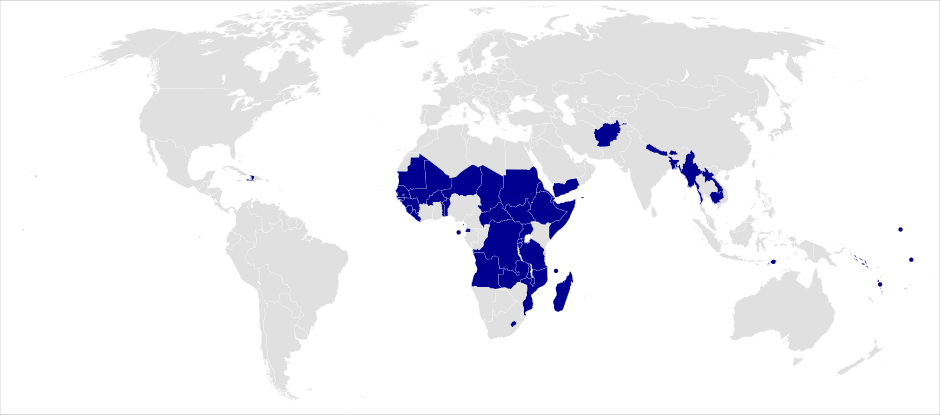政策实践﹀
Workshop on Productive Capacity and LDC Graduation to be Held at the CNSE
2016-11-08
Workshop on Productive Capacity and LDC Graduation to be Held at the CNSE

The Center for New Structural Economics (CNSE) at Peking University will hold the Workshop on Productive Capacity and Least Developed Country (LDC) Graduation, in collaboration with the Committee for Development Policy (CDP) Secretariat of the Development Policy and Analysis Division (DPAD) of the UN Department of Economic and Social Affairs (UN-DESA),from November 10 to 12 at Peking University.The Commonwealth Secretariat is co-sponsoring the event.
The workshop will discuss the importance of LDC productive capacities and related national policy measures needed for successful LDC graduation. The Growth Identification and Facilitation Framework (GIFF), developed by Justin Yifu Lin,Director of the CNSE, is an action-oriented policy tool for identifying ‘what a developing country has’ (factor endowment analysis) and ‘what it can potentially do well’ (latent comparative advantages) and for recommending how governments can play a facilitating role in overcoming the first-mover and coordination problems. The GIFF approach will be discussed in case studies of pilot countries including Nepal and Uganda.
LDCs likely to graduate in coming years will present their graduation strategies, and other countries will discuss their possible LDC graduation options.
“It will be an excellent chance for LDCs to learn from each other’s experiences and to give them insight into a practical approach to understanding productive capacity,” said Daniel Gay, Inter-Regional Adviser with the CDP Secretariat.
The workshop will also involve a brainstorming session on the graduation diagnostics toolkit,aimed at helping countries clarify the LDC graduation procedure and remove some of the uncertainties surrounding the process.
Policymakers from 16 LDCs and one graduated country are invited: Angola, Bangladesh ,Bhutan, Cambodia, Equatorial Guinea, the Gambia, Lao PDR, Lesotho, Myanmar, Nepal, Samoa, Sao Tome and Principe, Solomon Islands, Tanzania, Timor Leste, Uganda and Vanuatu.
LDCs are low-income countries confronting severe structural impediments to sustainable development.The category of LDCs was introduced in 1971,to enable these countries to benefit from special international support measures in the areas of trade, development assistance, and general support.Several of the countries expecting to graduate from the LDC status by 2021 have expressed interest in better understanding the implications of the graduation.
More information about LDCscan be found at the UN-DESA DPADLDC Portal :http://www.un.org/ldcportal/

